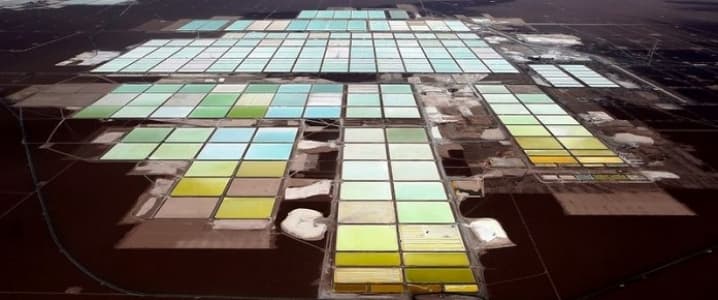Lithium batteries made with asphalt could charge 10 to 20 times faster than the commercial lithium-ion batteries currently available.
The researchers developed anodes comprising porous carbon made from asphalt that show exceptional stability after more than 500 charge-discharge cycles.

(Click to enlarge)
Scanning electron microscope images show an anode of asphalt, graphene nanoribbons and lithium at left and the same material without lithium at right. The material shows promise for high-capacity lithium batteries that charge 20 times faster than commercial lithium-ion batteries. (Credit: Tour Group/Rice)
A high-current density of 20 milliamps per square centimeter demonstrates the material’s promise for use in rapid charge and discharge devices that require high-power density.
“The capacity of these batteries is enormous, but what is equally remarkable is that we can bring them from zero charge to full charge in five minutes, rather than the typical two hours or more needed with other batteries,” says James Tour, the chair in chemistry and a professor of computer science and of materials science and nanoengineering at Rice University.
The Tour lab previously used a derivative of asphalt—specifically, untreated gilsonite, the same type used for the battery—to capture greenhouse gases from natural gas. This time, the researchers mixed asphalt with conductive graphene nanoribbons and coated the composite with lithium metal through electrochemical deposition.
The lab combined the anode with a sulfurized-carbon cathode to make full batteries for testing. The batteries showed a high-power density of 1,322 watts per kilogram and high-energy density of 943 watt-hours per kilogram.
Testing revealed another significant benefit: The carbon mitigated the formation of lithium dendrites. These mossy deposits invade a battery’s electrolyte. If they extend far enough, they short-circuit the anode and cathode and can cause the battery to fail, catch fire, or explode. But the asphalt-derived carbon prevents any dendrite formation. Related: Activist Investors Crack Down On Shale CEO Salaries
An earlier project by the lab found that an anode of graphene and carbon nanotubes also prevented the formation of dendrites. Tour says the new composite is simpler.
“While the capacity between the former and this new battery is similar, approaching the theoretical limit of lithium metal, the new asphalt-derived carbon can take up more lithium metal per unit area, and it is much simpler and cheaper to make,” he says. “There is no chemical vapor deposition step, no e-beam deposition step, and no need to grow nanotubes from graphene, so manufacturing is greatly simplified.”
The research appears in the journal ACS Nano.
Rice graduate student Tuo Wang is lead author of the paper. Additional coauthors of the paper are from Rice University; the King Fahd University of Petroleum and Minerals, Dhahran, Saudi Arabia; and Wuhan University, China.
The Air Force Office of Scientific Research, EMD-Merck, and Prince Energy supported the research.
By Futurity
More Top Reads From Oilprice.com:


















